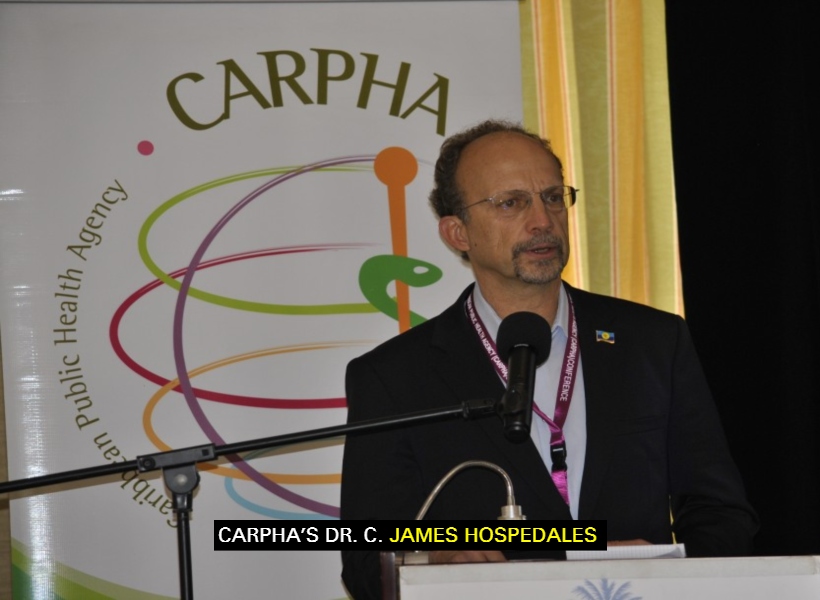A €1.5 million funding agreement was this week signed by the Caribbean Public Health Agency (CARPHA) to strengthen strategic intelligence, partnership approaches, and regional health security in the Caribbean to ultimately prevent and control non-communicable diseases (NCDs).
With CARPHA being the regional laboratory catering to Caricom territories, Guyana is poised to benefit from the proposed improved health security agreed to in the agreement.
The agreement was signed by Dr. C. James Hospedales, Executive Director of CARPHA and Mr. Philippe La Cognata, Regional Director for Atlantic Ocean of the Agence Française de Développement (AFD). This signing ceremony took place at the Embassy of France in Port of Spain.
In his opening remarks His Excellency Serge Lavroff, Ambassador of France to Port of Spain stated that, “The partnership marks the firm commitment of the AFD to our region and the strong will to strengthen the links with it and work more closely with the various cooperation stakeholders. In this regard, health and health issues constitute, in our view, one of the main challenges that the Caribbean must overcome in the coming years and CARPHA is the right stakeholder for us to join forces with.” His Excellency also acknowledged the commitment and quality of work that CARPHA and its teams carry out in the Region.
Speaking at the signing, La Cognata said, “The Agence Française de Développement is really proud to sign this financing agreement with CARPHA to strengthen regional health security in the Caribbean.” He further stated, “We consider CARPHA a major player in the region regarding public health issues. For our agency, CARPHA is a quality counterpart and we are looking forward to strengthening our partnership over the years to come.”
The objectives of the agreement include improving the availability and use of NCDs and related population risk factor data, in CARPHA Member States (CMS) and at the regional level. The project has three components: Non-Communicable Diseases (NCDs) which includes the update and implementation of clinical guidelines for hypertension and diabetes. The Regional Health Security component involves communicable disease surveillance, and vector control and surveillance. The third component addresses partnerships, and includes partnership, brokering and negotiation training; and formalise cooperation between CARPHA Member States and the French Caribbean Outermost Regions (FCOR) on data collection and analysis as well as in other fields of cross expertise.
Dr. Hospedales thanked the AFD for their support and stated that, “This is a good reflection of solidarity. We are combining the CARPHA umbrella of member states with Martinique, Guadeloupe and French Guiana to have an increased regional health security response to threats, and matters associated with climate and environment, tourism and communicable diseases.” He went on to say, “The regional response to the grave threat posed by non-communicable diseases must be intensified immediately if the health, well-being and development gains of Caribbean people are to be protected. The areas of collaboration are aligned with CARPHA’s strategic priorities such as childhood obesity and other NCDs, communicable diseases and health security and the Caribbean Cooperation in Health.”













